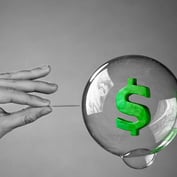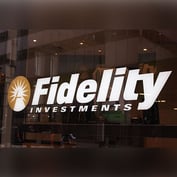What has been the hottest stock on the Dow Jones industrial average this year? It’s the long-downtrodden Hewlett-Packard, whose shares have risen more than 50 percent as of Wednesday. H-P had been pretty much a disaster since April 2010, when the stock price peaked above 50. Between then and last November, it had lost a phenomenal 78 percent of its value. But over the past three months, H-P has been showing signs of life again.
Hewlett-Packard came by its troubles honestly. First of all, there was the weakness in the PC market that drove Dell back into private hands. H-P pushed forward into the tablet market, but its webOS was a failure in the face of Android-fueled tablets from Asus and Lenovo, and H-P was eventually forced to sell the business to Korean conglomerate LG last month.
H-P also suffered from some spectacularly ill-advised acquisitions. It recently had to write off $8 billion from its 2008 purchase of Electronic Data Systems — the company founded back in 1962 by H. Ross Perot — and another $1 billion resulting from its 2010 acquisition of the PDA manufacturer Palm, which brought with it the ill-fated webOS. But those were small beer compared to the botched 2011 purchase of Autonomy, a British enterprise software company. That’s cost not only another $9 billion in writedowns, but forced the H-P board to target five board members for removal and launched, at last count, a double-digit number of lawsuits.
These issues forced the company to run through several CEOs. After the beleaguered Carly Fiorina was forced to resign in 2005, she was replaced by Mark Hurd, who himself resigned in August 2010 over an alleged inappropriate relationship with a consultant. Hurd’s eventual replacement, Léo Apotheker, himself lasted less than a year before being replaced by former eBay CEO Meg Whitman in September 2011.
The stock had pretty much bottomed out when Whitman took over, having lost more than 45 percent of its value over the course of the year before she officially took office on Sept. 22, 2011. The stock was at about 22 then, and perked up for a while, rising to a temporary high near 30 the following February.
Then things starting falling apart again. Second quarter profits were devastatingly poor, down 31 percent, and their report was accompanied by the news that H-P would be laying off 27,000 workers. By September, that was upped to 29,000. Then, in November, the Autonomy deal blew up, and the subsequent writedown sent the stock to below 12.
At that point, there was nowhere to go but up. Whitman’s tenure, which had looked promising at the beginning, was then over a year old and had resulted in the stock losing more than half its value.








 March 22, 2013 at 11:34 AM
March 22, 2013 at 11:34 AM










